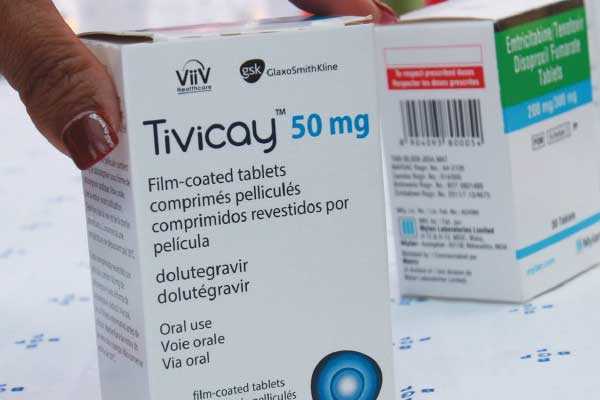AIDS free generation in Botswana within our reach
2016 was a monumental year for Botswana. Not only did Botswana celebrate 50 years of independence, it also made history with a move towards controlling the HIV epidemic through the adoption of a new and progressive treatment policy called “Treat All.” Today, on World AIDS Day, I am optimistic this will be our best shot at finally ending the long struggle against HIV.
On June 3, President Khama launched this important new policy. Botswana is now among the first countries to offer free antiretroviral therapy to any citizen living with HIV, regardless of their white blood cell count (CD-4 count), a measure previously used to determine a person’s need for treatment. This will ensure more Batswana live longer, healthier lives and help prevent more than 120,000 new HIV infections, 55,000 deaths over the next 15 years, and significantly decrease new tuberculosis cases.
These projections come with many caveats, and the bold adoption of this policy has to be followed with even bolder implementation. An inclusive, vigorous Treat All policy will only work if testing services are readily available, and those that need it are quickly linked to treatment without delay. Drugs and other commodities need to be in clinics and pharmacies on time and without the threat of running out. I would also encourage Botswana to debate the merits of providing free treatment to non-citizens who can’t pay for themselves to ensure no one is left behind.
Most of all, for this policy to work, we need to convince our friends, family and loved ones our health and protecting the health of others is the most important thing in life. We must all know our HIV status and do everything we can to prevent the further spread of this disease.
My government, through the President’s Emergency Plan for AIDS Relief (PEPFAR), is supporting Botswana’s move to Treat All with the goal of helping this nation reach epidemic control in the next three years. Over the last decade, PEPFAR committed more than $750 million to Botswana in the response to HIV. We are investing another $48 million in 2017 to support community programs, health facilities and for the purchase of drugs. With the Government of Botswana, civil society, development partners, and dedicated responsible individuals like you, we will reach our goal of an AIDS free generation together.
We must all do our part. On World AIDS Day, the U.S. government would like to recognize 12 individuals who over the last year have gone above and beyond to ensure a healthy future for the youth of Botswana. Some of them are young people who have made a difference, others work directly with youth, or advocate on their behalf. All of them are heroes. Among those nominated by their peers and featured in a 2017 calendar are counselors, students, radio personalities and a tribal chief. Included in this exclusive list of achievers is 33-year-old Gaborone Mayor Kagiso Calvin Thutlwe, one of the youngest mayors in Africa.
The Mayor tested for HIV publicly and was appointed to lead Southern Africa mayors in the “Mayor’s HIV Test Drive” as part of the United Nation’s 90-90-90 Strategy seeking to diagnose 90% of people living with HIV, enroll 90% of those with HIV on antiretroviral treatment, and ensure 90% on treatment maintain viral suppression.
His energy and outspoken leadership on HIV/AIDS issues has been refreshing and inspiring. I would like to congratulate every one of the 12 individuals being honored as PEPFAR heroes, including Osego Winnie Ramotsisi (24); Kagiso David Morebodi (32); Mpule Kgetsi (25); Pilot Mathambo (37); Kagoyarona Kakanyo (27); Thulaganyo Chirwah Mahloko; Stompie Sehularo Makolobe (36); Thabiso Titus Paul (25); Onalethata Mpebe (34); Kgosi Reuben Masie (36); and Yvonne Motshabise (41).
Achieving an AIDS free generation in Botswana, once an unlikely dream, is now within our reach. It will not happen automatically, or easily, but we will get there. The selfless inspiring work of our PEPFAR heroes will help us get there. Bold policy commitments like the one that brought us Treat All will help us get there. Together, we will get there, giving our children and grandchildren the greatest gift one generation can pass to another: a healthier, safer, brighter future.






